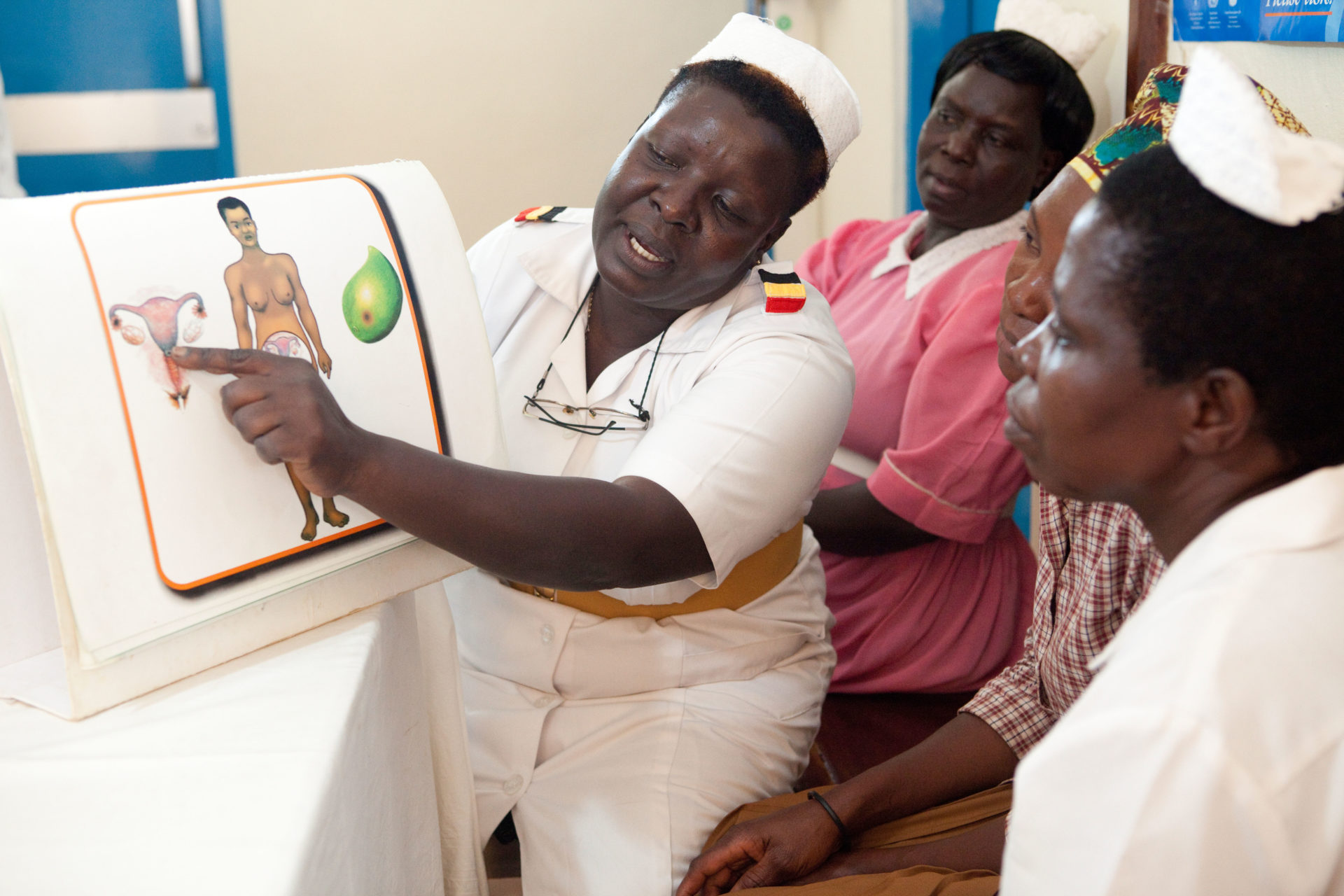Most Irish women do not recognise common signs of ovarian cancer, a study by the Irish Network for Gynaecological Oncology (INGO) has found.
To mark World Ovarian Cancer Day on May 8th, the INGO carried out the research and found knowledge of the disease varies hugely.
Four fifths of women recognised that a persistent pain in either the abdomen or pelvis could be a sign of ovarian cancer and three quarters knew persistent bloating or increased abdominal size could be a sign of cancer.
However, only 51% knew feeling persistently full could be also a sign of cancer, while only 39% knew difficulty eating is one as well.
49% knew that changes in bowel habits could be a sign of cancer but only 39% knew that passing urine more frequently could be a sign too.
 C676DG A nurse talks to women about cervical and ovarian cancer at Mbale Regional Referral Hospital in Mbale, eastern Uganda.
C676DG A nurse talks to women about cervical and ovarian cancer at Mbale Regional Referral Hospital in Mbale, eastern Uganda.Most ovarian cancer patients are diagnosed in the late stages of the disease and doctors fear the vagueness of the symptoms mean people often confuse them with other conditions.
“There is a lack of confidence to recognise the symptoms,” Senior Research Fellow at Trinity College Dr Sharon O'Toole said.
“Those symptoms, as I said, they’re vague; we have bloating, eating difficulties, abdominal pain, toilet changes.
“So, they can be misinterpreted for other things also.”
Women are being encouraged to learn the BEAT symptoms and contact the GP if they experience any of them.
- Bloating that is persistent and doesn’t come and go
- Eating less and feeling full more quickly
- Abdominal and pelvic pain you feel most days
- Toilet changes in urination or bowel habits
More than 80% of ovarian patients are over the age of 50 and women in this age group should be especially aware of the symptoms.
Every year, some 400 women in Ireland are diagnosed with the disease and nearly 300 die from it.
Main image: A woman with stomach pains. Picture by: Alamy.com









